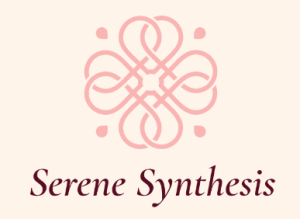One company announces “Friday Pizza Day.” The team smiles, eats, posts a few photos, and by Monday morning, it’s business as usual.
Another company kicks off the week by sharing exactly how last month’s project saved a client from a major loss — naming each team member who played a role. The mood is different. The energy is different. The commitment lasts.
The first is a perk. The second is purpose.
And in the long game of retention, purpose wins every single time.
Why connection beats compensation in the long run
Perks and incentives work like sugar. They give a short, sharp spike in motivation — but the effect fades quickly. Research by Gallup consistently shows that while pay and benefits are important, they are rarely the primary driver of sustained engagement. What truly keeps people invested is a sense of meaning, belonging, and alignment with the organization’s mission.
When employees feel like a replaceable part, their performance stays transactional. When they feel like a vital piece of something bigger, they bring creativity, energy, and loyalty that no policy can force.
The leader mindset that quietly destroys loyalty
Some leaders I’ve met — particularly in high-pressure industries — hold an unspoken belief:
“If I make employees feel important, they’ll start asking for more — more pay, more flexibility, more recognition. Better to keep the relationship transactional.”
It’s a scarcity mindset disguised as control. They ration appreciation, thinking it protects them from entitlement. In reality, it does the opposite.
When employees feel undervalued, they don’t become easier to manage — they disengage, underperform, and eventually leave. Deloitte’s Human Capital Trends report calls this “culture debt” — the cost of withholding connection, which eventually shows up in turnover, recruitment expenses, and stalled innovation.
The hidden psychology of belonging at work
This isn’t just a feel-good philosophy; it’s wired into our biology. Neuroscience tells us that recognition and shared purpose trigger the release of oxytocin — a chemical that strengthens trust and social bonds. Social psychologists call it identity fusion: when people see the organization’s success as part of their own identity.
When that happens, employees don’t just “do their job” — they protect, innovate, and push boundaries because it matters to them personally.
Transactional relationships cap potential
A purely transactional relationship might keep a business functioning, but it will never inspire discretionary effort — the extra energy people give not because they’re paid to, but because they want to.
Teams in high-trust, purpose-driven cultures consistently outperform those in low-trust, transactional environments — not just in morale but in measurable results like client retention, sales growth, and innovation speed.
The real retention strategy
If you’re a leader, ask yourself: If tomorrow, your budget for perks disappeared, would your team still choose to stay?
The strongest retention strategy is showing people that they matter beyond their output — that their role ties directly to the organization’s bigger story. It’s not about inflated praise or unsustainable raises; it’s about clear, consistent connection to purpose.
How leaders can start today
- Name the contribution – Be specific about how someone’s work impacted the team, client, or company outcome.
- Link daily tasks to the mission – Don’t assume people see the bigger picture; connect the dots regularly.
- Address fears of entitlement – Recognize that appreciation doesn’t weaken authority — it strengthens influence.
- Build emotional intelligence – Learn to notice and respond to the human drivers of motivation, not just the metrics.
At Serene Synthesis, I help leaders develop the emotional intelligence and communication skills to build trust-based, high-performance teams — especially in the UAE’s fast-changing business environment. Because in the age of talent mobility, connection isn’t a “soft” skill. It’s a strategic advantage.
If you’d like to create a culture where recognition fuels performance without breeding entitlement, our Leadership & Emotional Intelligence Coaching programs can help.
Explore how we work with leaders across the UAE to build teams that stay committed — not because they have to, but because they want to.


